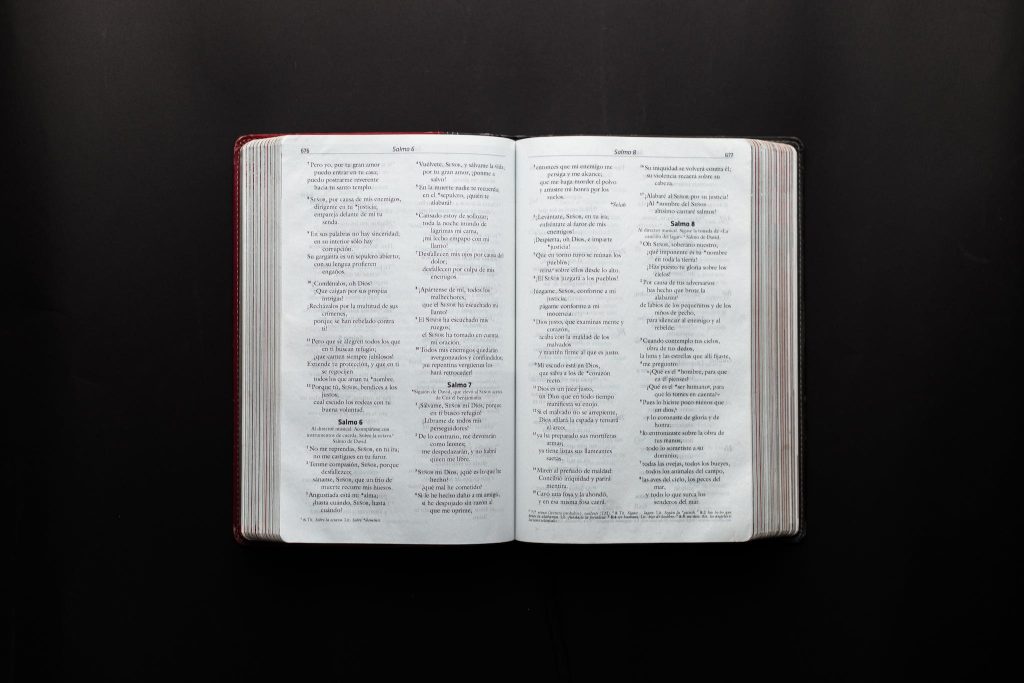What Does the Bible Say About Menstruation?
The Bible has several references to menstruation and a woman’s monthly period. Overall, it generally considers menstruation to be part of the natural reproductive cycle of a woman’s body, although specific verses indicate it also makes a woman ceremonially unclean under Mosaic law.
Old Testament Verses About Menstruation
The Old Testament includes several verses that specifically mention menstruation or a woman’s period:
Ritual Impurity
According to Leviticus 15:19-30, a menstruating woman was considered ritually “unclean” for 7 days. Anyone who touched her would be unclean until evening. Anything she lay or sat on during her period had to be washed.
After her period, she had to wait 7 more days until she was “clean” enough to enter the temple and touch sacred objects. On the 8th day, she had to bring offerings after she was purified.
This showed that, under Old Testament religious law, a woman’s period made her unable to participate in temple rituals or touch holy objects during that time. Scholars believe this goes back to ancient concepts linking blood with impurity.
Sexual Relations
Leviticus 20:18 prohibits sexual relations during a woman’s period. This stemmed from the ritual impurity view described above. Breaking this incurred punishment or exile.
Later, Ezekiel 18:5-6 uses “not approaching a woman to uncover her nakedness during her menstrual impurity” as part of its definition of a righteous man. This further establishes sexual activity during menstruation as religiously prohibited.
Purity After Childbirth
The Book of Leviticus 12:1-8 discusses a woman’s period returning as a sign of restored purity after giving birth to a son or daughter.
Until the menstrual flow started again, the woman was “unclean.” After that, she had to purify herself through offerings and regain her place among God’s people.
Supernatural Menstruation
In the apocryphal Bible story of Susanna, two elders spy on a woman bathing and then lie about seeing her with a young man. Susanna is sentenced to death.
The prophet Daniel stops them, saying if they saw her naked, they would have remembered her appearance. The author notes that the elders “supernaturally” saw menstrual blood, even though Susanna was pure in this regard (Daniel 13:32).
This provides an unusual case where menstruation becomes part of a false accusation. But overall, early Jewish law saw period blood as ceremonially impure.

New Testament Verses About Menstruation
The New Testament does not directly refer to menstruation or a woman’s monthly period. This likely stems from the view that the ceremonial laws about cleanliness were part of the Old Covenant. The teachings of Jesus brought about a new covenant between God and his people.
There are two indirect NT references relevant to menstruation, however:
Healing of Bleeding Woman
The Gospels record Jesus healing a woman who had chronic bleeding for 12 years (Mark 5:25-34, see also Matthew 9:20-22 and Luke 8:43-48). She touches Jesus’ cloak and is healed.
Jesus tells her that her faith has made her well. The passage shows Jesus was willing to interact with women, including one with an issue linked to menstruation. Christians see this as showing compassion, which overturns older purity laws.
Paul’s Teaching About Natural Sexual Relations
In his letters, the Apostle Paul responded to ascetic religious groups, urging people to abstain from all sex, even marriage. Paul teaches that natural sexual relations between a husband and wife are part of God’s plan and not impure (1 Corinthians 7:1-7).
This implicitly rejects extreme purity codes about bodily functions like menstruation. NT scholar Dr. Craig Keener writes that Paul’s teaching implies periods don’t affect the right relations between a Christian husband and wife.
Modern Christian Views on Menstruation
Today, Christians don’t consider menstruation or period blood as ceremonially unclean. Even orthodox groups that affirm biblical inspiration don’t follow the Old Testament purity laws about separation during periods.
Menstruation is seen as a natural, biologically designed process, showing the amazing intricacy of God’s creative wisdom. The female reproductive system’s complexity and integration are appreciated rather than stigmatized.
Most evangelicals believe the healing stories in the Gospels, Paul’s teachings on marriage, and the overall spirit of the New Testament portray menstruation as value-neutral physiologically. The ceremonial impurity code was overturned for Christians.
This allows full participation in religious rituals, access to sacred spaces, and sexual intimacy between spouses during menstruation today.
So in summary, the Bible reflects older cultural views of menstrual impurity under the Mosaic purity system but later pushes back on those with Jesus’ ministry and teaching. This gives a balanced perspective that is open to a positive view of the natural reproductive cycle of women’s bodies.







